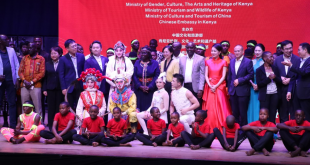What you need to know:
• The document on the proposed FTA that the US Special Trade Representative presented to Congress is fairy detailed on what and how Washington plans to achieve its intended outcome.
• The Kenyan one has very similar issues, except that it does not give us as much information as the US one.
• President Kenyatta’s final term also expires in under two years. So, what next?
Trade and investment negotiations with a bigger entity such as the European Union or the United States is not something to rush into. As Kenya’s ambassador to the EU in the 1980s, I participated in negotiations with the Eurpoean bloc for similar trade, investment and aid arrangements as being pursued with the US. Then referred to as the Lomé, and later, Cotonou Conventions, they are now known as the Economic Partnership Arrangements.
To undertake these complicated and lengthy negotiations with such an economic giant, the countries of Africa, Caribbean and Pacific formed the ACP Group. Based in Brussels, the ACP has, over the years, developed a strong team for such negotiations. President Uhuru Kenyatta is the current chairman of its Heads of State and government team.
The document on the proposed Free Trade Agreement (FTA) that the US Special Trade Representative presented to Congress is fairy detailed on what and how Washington plans to achieve its intended outcome. The Kenyan one has very similar issues, except that it does not give us as much information as the US one. It would be helpful if we got more details from our government for better public participation. A few points and questions that need a serious re-look would suffice.
How shall we deal with the EAC Common External Tariff? Will our neighbours agree to a deal they were not party to, as envisaged by the negotiations? The US farmers and other interested parties have already made their positions known to Congress. When shall we do so to our government? For example, US agro-food industries will push for their products to enter Kenya easily. How shall we deal with GMOs, which face resistance here?
The US law that gives the government power to conclude such agreements, the Trade Promotion Authority, expires next July. Meanwhile, President Kenyatta’s final term also expires in under two years. So, what next?
Finally, the US is opposed to taxes on data that will come into effect in Kenya in January. It has had serious fights with several other more powerful countries on a similar issue.
Entry terms
Let us be careful. First, US stakeholders have made more than 5,000 submissions of their requirements. For example, dairy farmers want their products to enter Kenya duty-free. Are Kenyans being organised to present our export lists and entry terms into the US too?
I was in President Daniel arap Moi’s last government and I saw how the donor community gave him near-impossible conditions.
The areas of negotiation are wide. They include agriculture; customs and trade facilitation; rules of origin; technical barriers to trade; good regulatory practices; transparency, publications and administrative measures; trade services; digital trade in goods and services; investments; intellectual properties; procedural fairness for medical devices; State-owned and -controlled enterprises; subsidies; competition policy; labour; environment; anti-corruption; trade remedies; government procurement; SMEs; and dispute settlements.
Secondly, with US elections around the corner, on November 3, is the timing right? We should wait to see who wins the election and if the winner will have an interest in the negotiations.
President Donald Trump is interested in bilateral negotiations and not the multilateral ones Africa prefers and is used to. Bilateral negotiations could complicate our foreign policy on international issues.
Thirdly, the deal calls for Kenya to seek technical assistance for these negotiations. We must be very careful about the individuals that we recruit to be sure that they look after our national interests are competent. We should first work on increasing the range of products that we export to the US under the Agoa arrangement. We can export up to 1,000 products but are only doing textiles and about three other items.
Lastly, we should rethink our lone ranger strategy of going it alone without the EAC and AU’s Africa Continental Free Trade Area (AFCFTA). After the current one expires in 2025, Kenya should negotiate the next Agoa deal together with other African countries.
It is my hope that Kenya will get it right.
Mr Nyagah is a former Cabinet minister in Kenya. joenyagah@gmail.com.
 Africa -China Review Africa -China Cooperation and Transformation
Africa -China Review Africa -China Cooperation and Transformation
